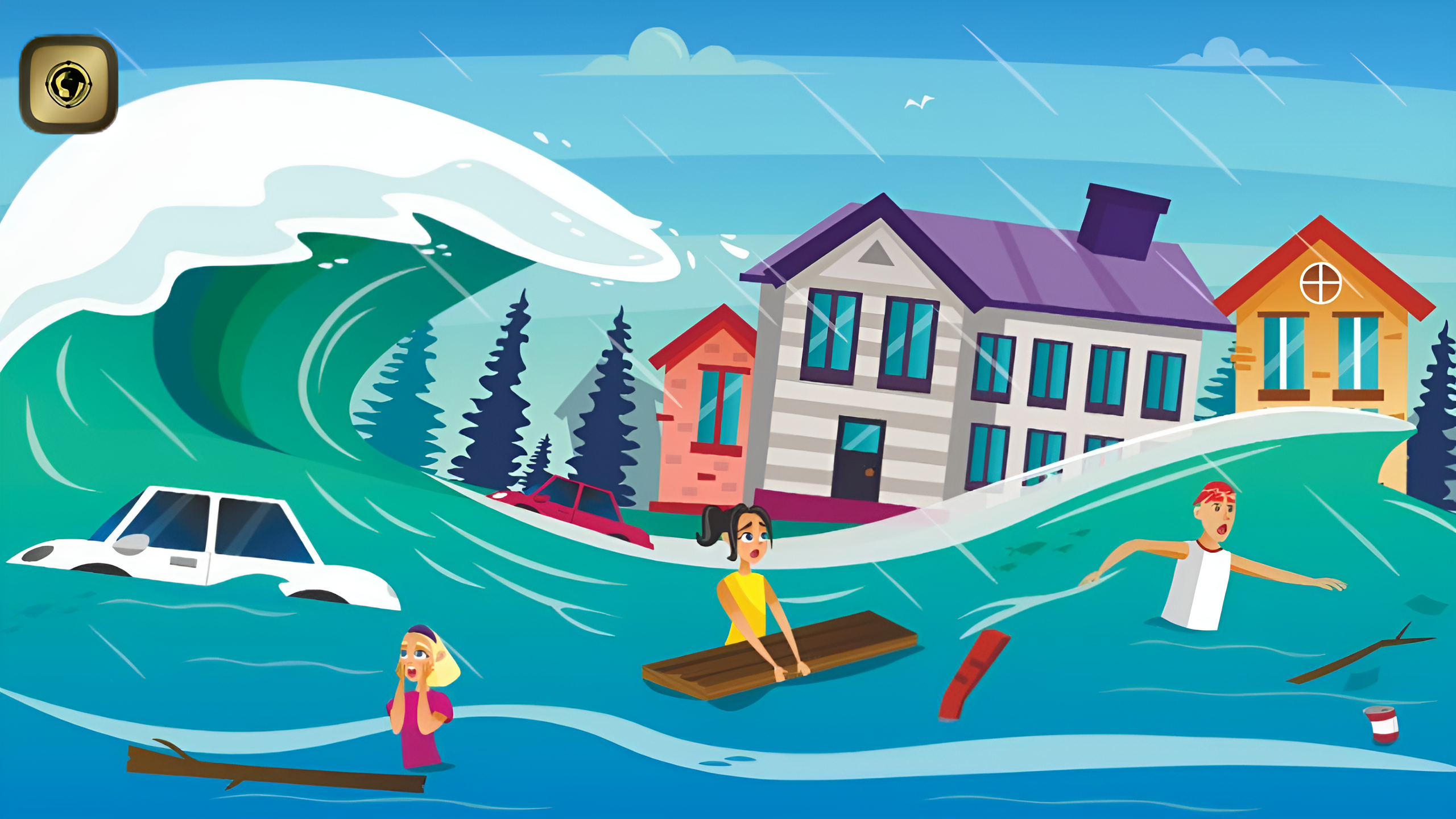March 28, 2025
- July 2021 was noted as one of the most severe months globally regarding rainfall-related incidents including floods and landslides. There have been ongoing wave of flood-related catastrophes worldwide, resulting in loss of life, property damage, and crop destruction, among other issues. In recent months, whenever you turn on the television and select a news channel, you can catch a report on floods occurring in various regions of the world. India is no exception to this trend. According to the National Disaster and Management Authority, some states in India, like Odisha and Andhra Pradesh, experience flooding on a yearly basis. Climate change plays a significant role in the persistent flooding seen in various locations around the globe. Therefore, it is crucial for citizens to understand how to safeguard themselves and their families from floods. This involves being aware of safety protocols to follow during floods and also safeguarding against financial losses from a flood by purchasing home insurance online.
What is A Flash Flood?
- Flooding refers to the inundation of areas typically dry due to heavy rainfall, cloudbursts, or storms. Floods rank among the most commonly occurring natural hazards. Various types of floods are categorized based on their causes. One particularly disastrous type of flood is the flash flood. When heavy rainfall exceeds the land’s ability to absorb water, flash floods occur. It is named for the rapid onset of severe flooding which leaves little time for planning evacuation or taking safety measures.
Flash Flood Safety Tips
- Floods have continually been listed among the top 10 deadliest disasters in India over the past 50 years. Flash floods typically happen within a few hours, offering minimal time for preparation. Given the perilous nature of flash floods, being prepared is always wise to avert significant incidents. Key safety measures to follow during heavy rainfall to ensure you and your family stay safe are outlined below.
- Prepare during dry times.
- Maintain a ready-to-go emergency kit containing essential items like food, water, and medicine.
- Keep a set of supplies that includes a phone, charger, batteries, flashlights, etc.
- Make sure to download mobile applications that offer consistent flood-related alerts and updates.
- Acquire home insurance online to assist in coping with the devastation brought by flash floods. HDFC ERGO home insurance protects against structural and content damage to your property from natural disasters.
How To Stay Safe At Home During A Flood
- Consider the following pointers to keep you and your family secure while remaining at home during floods.
Follow evacuation orders –
- One of the safest actions is to adhere to the evacuation orders issued by local authorities. Since flash floods occur with little or no prior warning, it is best to diligently follow the ongoing notifications and directives from local officials.
Move to higher ground immediately –
- Locate any location at a greater altitude, and proceed to it as swiftly as you can. The immediate emphasis should be on remaining as elevated above the water level as is feasible.
Avoid contact with floodwater –
- Floods are among the most frequent transmitters of water-borne illnesses. Attempt to steer clear of contact with floodwater as much as you can. Ensure there are no open cuts or injuries that could become infected due to exposure to floodwater.
How To Stay Safe In A Car During A Flood
Don’t drive around barricades –
- Flood barricades are established to manage floodwater and to alert drivers. Floods have the potential to sweep away significant portions of roads, making it difficult for drivers to spot such missing parts. Barricades function to caution motorists against such areas.
Avoid driving on bridges over fast-moving water –
- Rapidly flowing water is forceful and fully capable of carrying away entire bridges in its wake. Therefore, you should refrain from driving on bridges over rapidly moving water.
Avoid driving through floodwater –
- The force of a floodwater current can be erratic. You might believe you can navigate through a slightly flooded street, but a sudden surge of floodwater could create a perilous situation.
Stay in your vehicle if you’re surrounded by fast-moving water
- It is advisable not to exit if you’re encircled by fast-moving water. This is because you could be pulled away by the current and face drowning, while a car, being heavier and more stable, is difficult to overturn.
Conclusion
- Floods are a natural phenomenon that can occur at any time and in any location. Even if you do not reside near a river or another water source, continuous rainfall can lead to floods capable of inflicting significant damage to your property. This is why it is wise to invest in a solid home insurance policy that can safeguard your home and its belongings for a modest premium. If you purchase home insurance online when it’s safe, you will be able to cover the expenses of repairing your home in the event of a flood. As the saying goes, a stitch in time saves nine.
Disclaimer:
The above information is for illustrative purpose only. For more details, please refer to policy wordings and prospectus before concluding the sales.



Leave A Comment